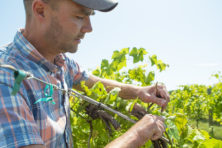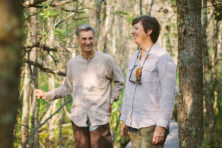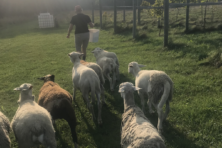Gathering Ground: Connecting People to the Land
- Share
- Tweet
- Pin
- Share

During the winter of 2016-17, five local residents who were interested in sustainable living wanted to form an organization at the same time that two vineyard owners, Tim and Julie Lyons, were looking to donate their land. This created Gathering Ground, a nonprofit that ties Washington Island and sustainable agriculture together.
Alessandra Rolffs and her husband, Russell, now the executive director and president of the board, respectively, were two of the original founders. Alessandra said that when it started out, it was about like-minded people coming together to educate and inspire sustainability and conservation in agriculture on Washington Island.
“Since then,” she said, “we’ve just been growing our education opportunities and finding new ways to reach people with fun ways to learn about agriculture.”
One of those ways was Gathering Ground’s second annual bike tour, which covered six farms on the island this year – two more than the first tour. The route of about 16 miles took cyclists across the island on a Sunday-morning ride.
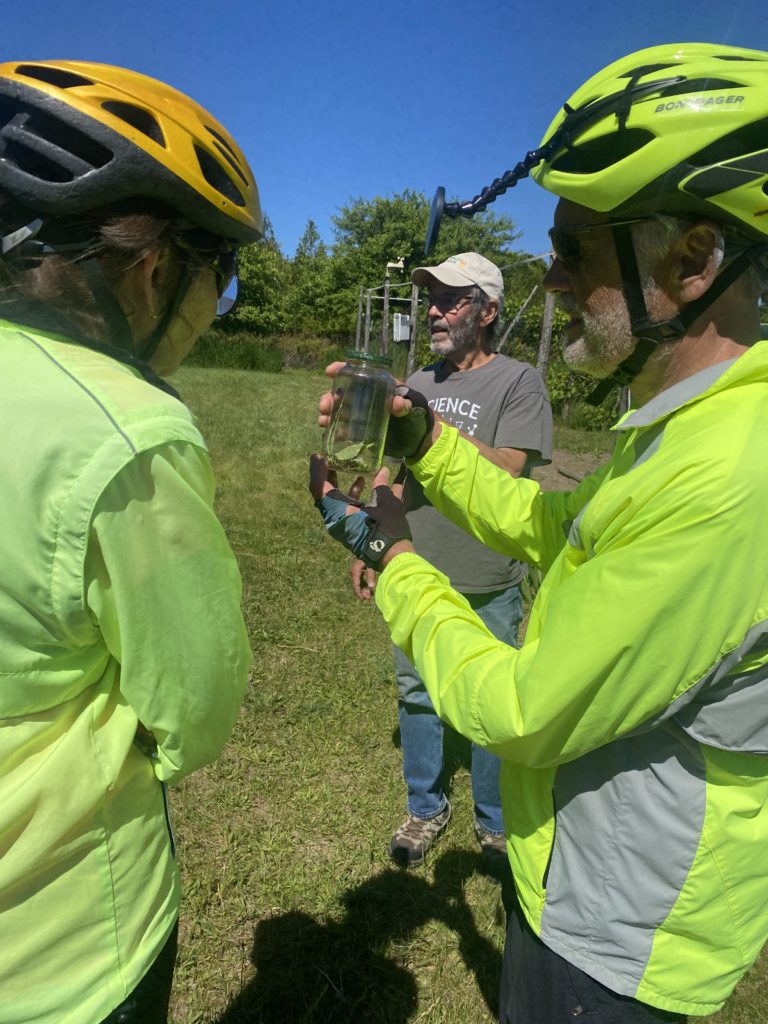
Rolffs said the idea was part of an increase in outreach effort to visitors that allowed people to experience the island in a way that connects them to the environment. With a bike tour, people can transport their bike on the ferry and leave their cars behind.
“It’s just kind of a unique experience of the island,” she said. “We feel like it’s contributing to the environment and the environmental wellness of this place.”
The farm stops invited cyclists to talk with owners and growers, walk around some of the farms and learn about some of the general techniques and challenges associated with sustainable agriculture.
The bike tour is also a way to educate and connect residents and visitors alike to Washington Island, Rolffs said. Both she and Russell, who was a teacher for 10 years, are passionate about education, so in 2017, the summer internship was born.
“We just think there is such an incredible opportunity for education in an outdoor classroom,” she said. “It’s such a timely and necessary subject that more and more people want to learn about.”
The 10-week summer program, called Ground School, hosts students ages 18-27 who are interested in topics such as food justice and ecological living. It’s both a school and a working experience.
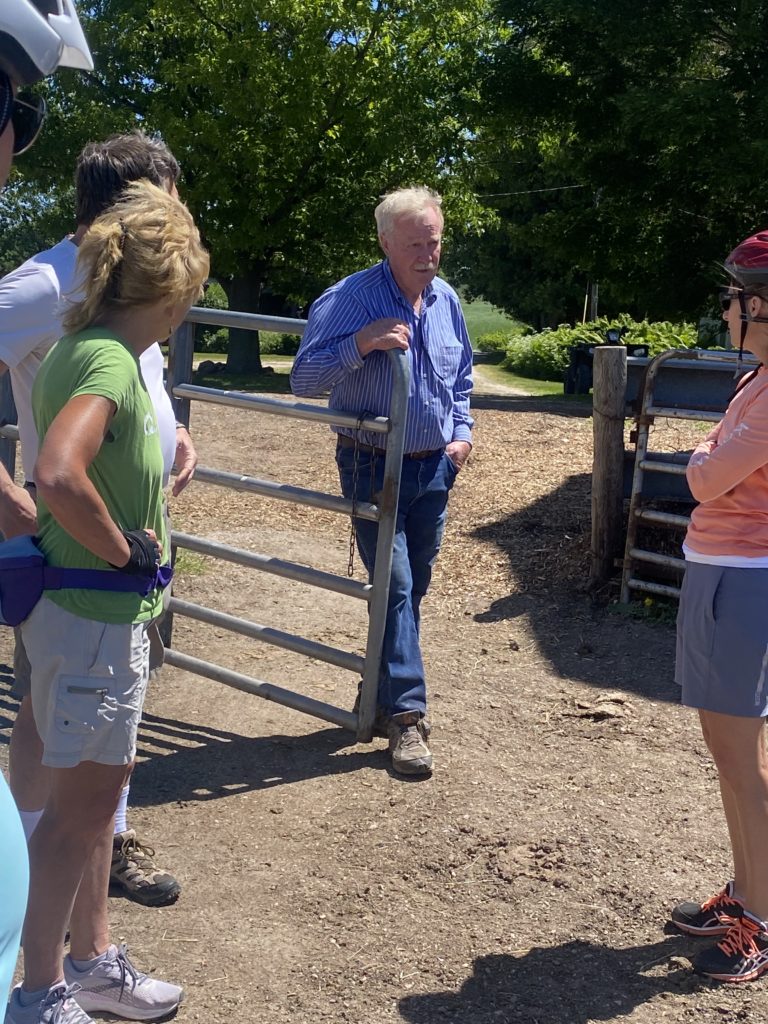
Each week, the students spend a hands-on educational day at the Gathering Ground Farm and 20-30 hours working in a paid position at a local farm or land-based organization. This year, they’ve worked at an apiary, vineyard, cidery and other establishments around the Island, some of which were featured on the bike tour.
As part of the educational experience, the students have twice-weekly seminars and field trips throughout the season, and they also cook and share meals made from locally sourced ingredients.
The Ground School is always growing, Rolffs said. Until this year, the program was only six weeks long, but now it stretches June 1 – Aug. 10. The number of interns has also increased to a high of seven this year, and Rolffs said they have students from as far as North Dakota and the University of Maine.
Two of them are Jaxon Salmon, a forest science major at the University of Wisconsin-Madison; and Ana McCabe, a journalism and environmental studies major at Augustana University in South Dakota.
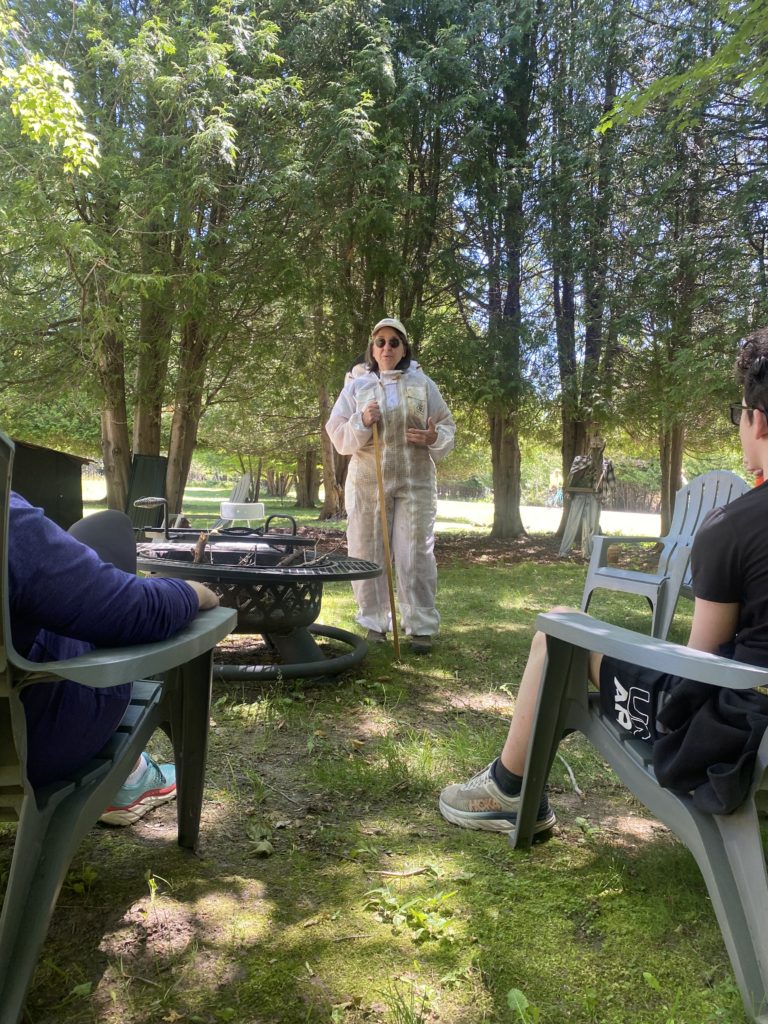
Salmon’s interest in sustainable food systems was piqued by a soil science course, he said, and he was interested in the internship’s agroforestry and livestock and tree integration program called silvopasture. Now he’s thinking about pursuing a future that involves consulting with farmers or teaching others in the agriculture field through the Natural Resources Conservation Service.
“In the past, I’ve done some hobby gardening with my mom, but never something at this scale,” he said. “As embarrassing as this sounds, I’ve been overwhelmed and anxious many times with some of the houseplants in my apartment.”
But now after his work at the Rolffs’ private farm, Hoot Blossom, he said he’s started picturing his future home garden. Salmon’s favorite work so far has been building a copse – a tree island – with the Crossroads Land Restoration School to make a food forest with hazelnuts and chestnuts.
“I can confidently say that I’ll be pursuing food [and native prairie wildflower] gardening for the rest of my life,” he said. “I feel very grateful to be given the opportunity to participate in work that will outlive me.”
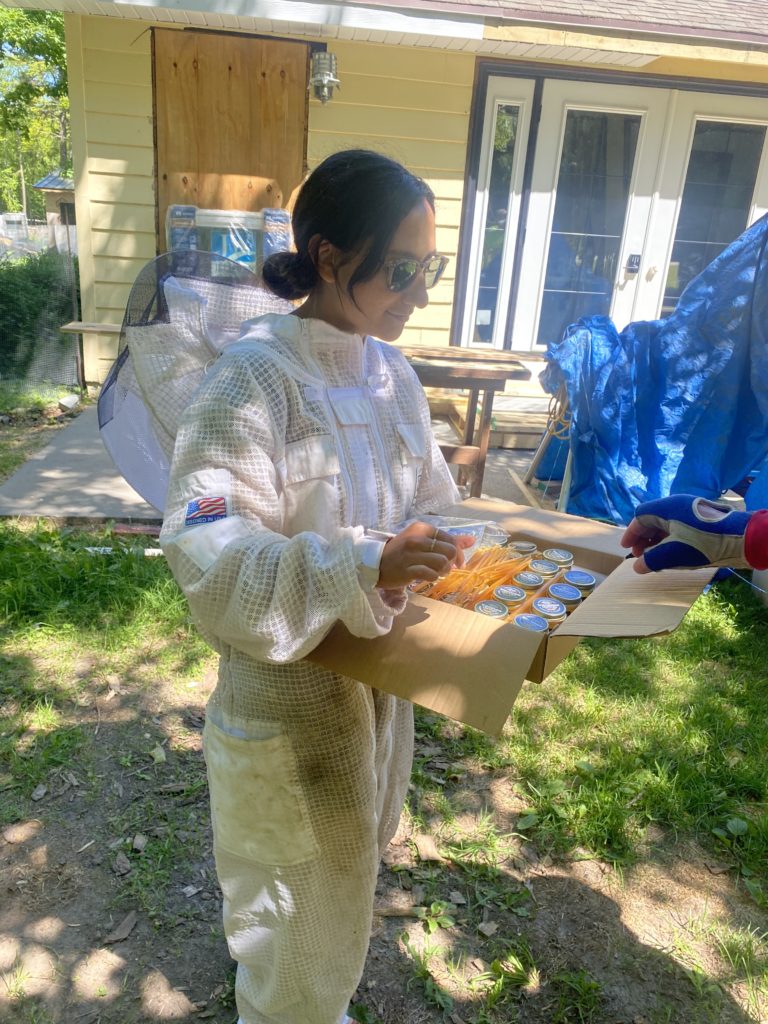
McCabe wanted an outdoor internship that allowed her to learn more about sustainable-agriculture tactics and battling food insecurities while experiencing living in a different part of the country. She also had an interest in local food production and distribution and works at the Sweet Mountain Farm apiary.
“I am learning so much from Sue Dompke and so grateful for her fountain of knowledge,” she said. “The highlight of my experience has been working with the other interns and getting to know their perspectives and backgrounds of agricultural sustainability.”
Rolffs said they try to incorporate education in all of their events and programs, including their largest fundraiser, Dinner in the Vineyard, which is an evening meal on the farm.
“We’re really showcasing the local farms’ fresh produce and using local chefs in the area who know how to work with these seasonal vegetables,” she said.
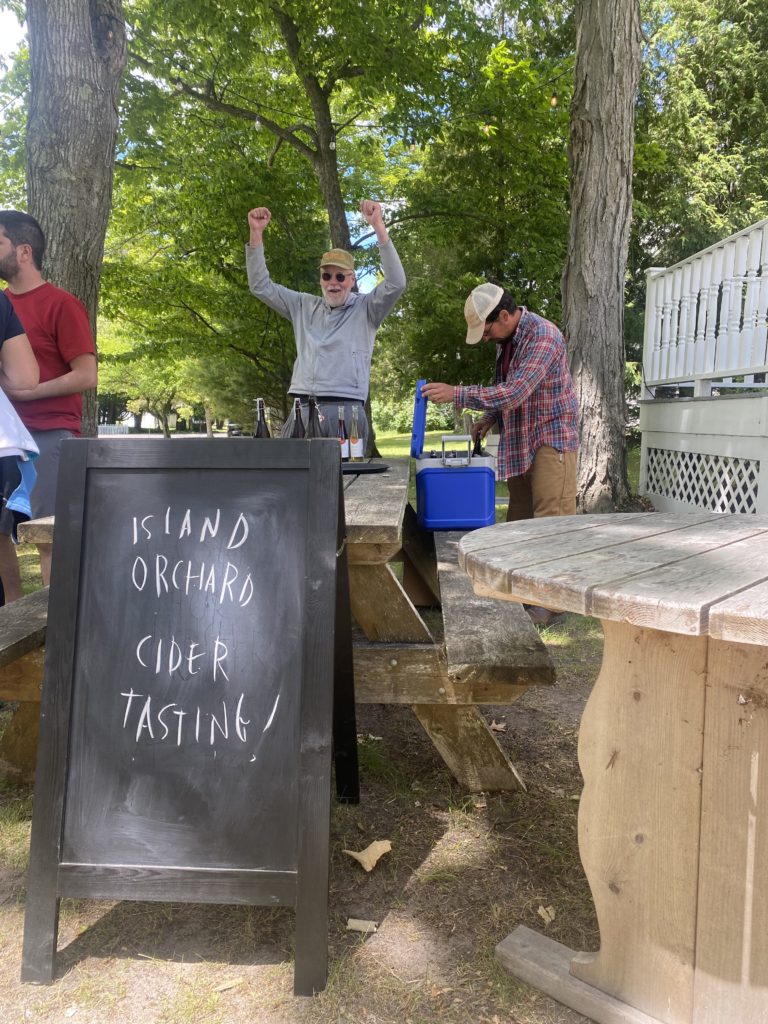
One of the goals they discuss with the interns is how to reduce the disconnect between people and their food.
“They go to the grocery store and think, ‘Our food came from the grocery store, but where did that food come from?”’ Rolffs said. “So even with our fundraiser, we try to tie to our mission of connecting people to the land.”


